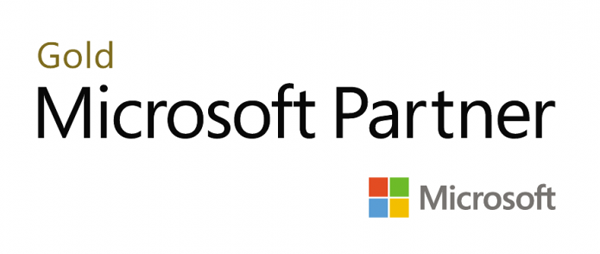Architecting Microsoft Azure Solutions (MOC20535)
- Seminar
- Präsenz
- Zurzeit keine Termine
- 40 Unterrichtseinheiten
- Teilnahmebescheinigung
Seminarnummer: 29477
Cloud basierende Lösungen für IaaS, PaaS oder SaaS Infrastrukturen benötigen ein gut geplantes Design, damit durch sie die geforderten Geschäftserfolge zu erreichen sind.
DIESES SEMINAR WIRD DURCH DAS NEUE SEMINAR AZ-300 MIT DER SEMINARNUMMER 29496 ANGELÖST. TERMINE SIND VERFÜGBAR.
DIESES SEMINAR WIRD DURCH DAS NEUE SEMINAR AZ-300 MIT DER SEMINARNUMMER 29496 ANGELÖST. TERMINE SIND VERFÜGBAR.
Nutzen
This course is intended for architects who have experience building infrastructure and applications on the Microsoft Azure platform. Students should have a thorough understanding of most services offered on the Azure platform. The students typically work for organizations that have an active solution on Azure and are planning to enhance existing solutions or deploy more solutions to the Azure platform. This course also is intended for architects who want to take the Microsoft Certification exam, 70-535, Architecting Microsoft Azure Solutions.
Zielgruppe
This course is intended for students who have experience building infrastructure and applications on the Microsoft Azure platform. Students should have a thorough understanding of most services offered on the Azure platform.
For the interactive component, this course offers students the opportunity to deploy Azure solutions using built-in DevOps tools such as Azure Resource Manager templates, deployments, resource groups, tags and Role-Based Access Control.
The candidates targeted by this training have intermediate experience in designing, implementing and monitoring Azure solutions. Candidates are also proficient with the tools, techniques, and approaches used to build solutions on the Azure platform.
Anforderungen
Before attending this course, students must have the following technical knowledge:
- Create resources and resource group in Azure.
- Manage users, groups, and subscriptions in an Azure Active Directory instance.
- Build an Azure Virtual Machine with related resources.
- Manage containers and blobs stored in an Azure Storage account.
- Create App Service Plans and manage apps related to the plan.
- Configure an Azure Virtual Network and enable S2S and P2S connectivity.
- Protect networked application components using Network Security Groups.
- Automate everyday Azure resource tasks using Azure CLI or Azure PowerShell.
- Deploy an Azure SQL, MySQL, Postgres or Cosmos database instance.
- Monitor existing Azure solutions using built-in metrics, Application Insights, or Operational Insights.
Inhalte
Module 1: Application Architecture Patterns in Azure
This module introduces and reviews common Azure patterns and architectures as prescribed by the Microsoft Patterns & Practices team. Each pattern is grouped into performance, resiliency, and scalability categories and described in the context of similar patterns within the category.
Lessons
Module 2: Deploying Resources with Azure Resource Manager
This module establishes a basic understanding of Azure Resource Manager and the core concepts of deployments, resources, templates, resource groups, and tags. The module will dive deeply into the automated deployment of resources using ARM templates.
Lessons
This module identifies workloads that are ideally deployed using Infrastructure-as-a-Service services in Azure. The module focuses on the VM Scale Sets and Virtual Machine services in Azure and how to best deploy workloads to these services using best practices and features such as Availability Sets.
Lessons
This module describes services that use infrastructure but manage the infrastructure on behalf of the user instead of obfuscating the infrastructure resources. The module focuses on infrastructure-backed PaaS options such as Azure Service Fabric, Container Service, and App Service Environments. The module will explore how to deploy custom workloads to these services such as an HPC batch processing task.
Lessons
Module 5: Authoring Serverless Applications in Azure
This module describes how solutions can leverage serverless application hosting services in Azure to host web applications, REST APIs, integration workflows and HPC workloads without the requirement to manage specific server resources. The module focuses on App Services-related components such as Web Apps, API Apps, Mobile Apps, Logic Apps, and Functions.
Lessons
Module 6: Backing Azure Solutions with Azure Storage
This module describes how many Azure services use the Azure Storage service as a backing store for other application solution in Azure. The module dives into critical considerations when using Azure Storage as a supplemental service for an all-up Azure solution.
Lessons
Module 7: Comparing Database Options in Azure
This module compares the various relational and non-relational data storage options available in Azure. Options are explored as groups such as relational databases (Azure SQL Database, MySQL, and PostgreSQL on Azure), non-relational (Azure Cosmos DB, Storage Tables), streaming (Stream Analytics) and storage (Data Factory, Data Warehouse, Data Lake).
Lessons
Module 8: Networking Azure Application Components
This module describes the various networking and connectivity options available for solutions deployed on Azure. The module explores connectivity options ranging from
This module introduces and reviews common Azure patterns and architectures as prescribed by the Microsoft Patterns & Practices team. Each pattern is grouped into performance, resiliency, and scalability categories and described in the context of similar patterns within the category.
Lessons
- Pattern Resources
- Performance Patterns
- Resiliency Patterns
- Scalability Patterns
- Data Patterns
Module 2: Deploying Resources with Azure Resource Manager
This module establishes a basic understanding of Azure Resource Manager and the core concepts of deployments, resources, templates, resource groups, and tags. The module will dive deeply into the automated deployment of resources using ARM templates.
Lessons
- ARM Templates
- Role-Based Access Control (RBAC)
- Resource Policies
- Security
- Building Blocks
This module identifies workloads that are ideally deployed using Infrastructure-as-a-Service services in Azure. The module focuses on the VM Scale Sets and Virtual Machine services in Azure and how to best deploy workloads to these services using best practices and features such as Availability Sets.
Lessons
- High Availability
- Templated Infrastructure
- Domain-Connected Machines
This module describes services that use infrastructure but manage the infrastructure on behalf of the user instead of obfuscating the infrastructure resources. The module focuses on infrastructure-backed PaaS options such as Azure Service Fabric, Container Service, and App Service Environments. The module will explore how to deploy custom workloads to these services such as an HPC batch processing task.
Lessons
- Infrastructure-Backed Platform-as-a-Service (PaaS)
- High-Performance Compute (HPC)
- Migration
Module 5: Authoring Serverless Applications in Azure
This module describes how solutions can leverage serverless application hosting services in Azure to host web applications, REST APIs, integration workflows and HPC workloads without the requirement to manage specific server resources. The module focuses on App Services-related components such as Web Apps, API Apps, Mobile Apps, Logic Apps, and Functions.
Lessons
- Azure Web App
- Azure Functions
- Integration
- High Performance
Module 6: Backing Azure Solutions with Azure Storage
This module describes how many Azure services use the Azure Storage service as a backing store for other application solution in Azure. The module dives into critical considerations when using Azure Storage as a supplemental service for an all-up Azure solution.
Lessons
- Pricing
- Blob Storage
- Files
- StorSimple
Module 7: Comparing Database Options in Azure
This module compares the various relational and non-relational data storage options available in Azure. Options are explored as groups such as relational databases (Azure SQL Database, MySQL, and PostgreSQL on Azure), non-relational (Azure Cosmos DB, Storage Tables), streaming (Stream Analytics) and storage (Data Factory, Data Warehouse, Data Lake).
Lessons
- Relational
- NoSQL Services
- Azure Cosmos DB
- Data Storage
- Data Analysis
Module 8: Networking Azure Application Components
This module describes the various networking and connectivity options available for solutions deployed on Azure. The module explores connectivity options ranging from
Hinweise
Microsoft und wir ersetzen ab Dezember 2018 den Azure MOC20535 durch die neuen
Microsoft Seminare MOC-AZ-300 und MOC-AZ-301, die auf den neuen jobrollenorientierten
Abschluss zum Microsoft Certified Azure Architect Expert vorbereiten!
Die Seminarnummern sind 29496 bzw. 29497. Die MOC2053x Seminare werden 2019
aus dem Angebot genommen, die jetzigen MCSA Examen 70-75x sind dann auch bei
Pearson VUE nicht mehr verfügbar und durch die Examen AZ-x00 und AZ-x01 ersetzt.
Personen mit 70-75x basierenden MCSA Zertifizierungen können ihren Abschluss mit einer AZ-x02 Transitionprüfung updaten.
Personen mit 70-75x basierenden MCSA Zertifizierungen können ihren Abschluss mit einer AZ-x02 Transitionprüfung updaten.


